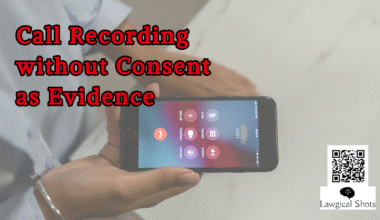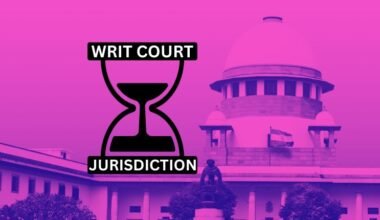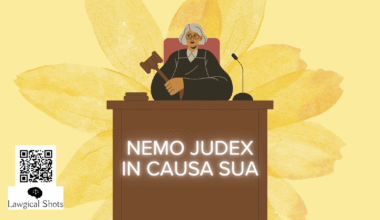Latin terms are a headache for law students, until they get a hang of it. The doctrine of res ipsa loquitur is one such latin maxim which is hard to remember. However, when you know that the rash (res) driving by a girl named Isha Lokur (Ipsa Loquitur) led to a cafe reception being thrashed, you will remember…..you will remember him when the Court punished rash Isha Lokur, for the smashed glass of the cafe window, the thing, spoke for itself. If you still don’t get it, let’s explore res ipsa loquitur, its meaning, examples, and some cases to have a better understanding.
What is the meaning of res ipsa loquitur?
Res Ipsa Loquitur is a latin maxim which means “the things speak for itself”. The maxim mostly pertains to negligence in Tort Law. The doctrine is applicable in both Civil and Criminal cases. It means that the error or negligence is so evident in itself that the complainant/victim/Plaintiff need not prove the defendant’s guilt. The burden of proof shifts upon the defending party when the doctrine of res ipsa loquitur applies. Now, the defending party has to prove that he/she was not negligent in the first place.
Essential Elements of Res Ipsa Loquitur
The Courts while applying the doctrine of res ipsa loquitur look for certain prima facie elements which attract the applicability of the same. Given below are three major factual aspects for the doctrine to apply:
- Injury would not have occurred if there was no negligence
- The defendant was exclusively in control of the thing which caused injury
- The victim was not guilty of contributory negligence.
It may be noted that the doctrine does not apply in cases where reasonable care was taken and the occurrence was beyond natural control of the defendant.
What is a simple example of res ipsa loquitur?
- In cases of medical negligence, where a scissor or towel is left inside the body of a person while operating. Since the fact cannot be denied and the thing left inside the body itself speaks of negligence, the burden shifts upon the medical staff who were part of the surgery.
- If a big vase falls off the balcony and injures someone standing beneath, the house owner has to prove that the winds were extremely strong to cause the incident.
- A customer who returned from a beauty parlour after waxing session sued the said parlours for burns caused during the process. Now, the burden shifts upon the beauty experts to prove that the burns were not caused due to their negligence.
- A car was driving the wrong lane and traffic was coming from the opposite side. At the sharp turn, the negligent car hit a bus and injured several passengers. In this case, the car driver in the wrong lane will have to prove why he/she was not negligent.
What are Famous Case Laws on Res Ipsa Loquitur?
There are several res ipsa loquitur case laws wherein the Courts have explained the shift of burden of proof among the parties in cases of negligence. Given below are the landmark cases:
Byrne v. Boadle (1863)
In this case, a barrel of flour fell from the window upon a passerby and seriously injured him. The principle of res ipsa loquitur is said to have originated in this English Common Law Case. It was held that in specific circumstances, the mere fact that the incident occurred, can be sufficient evidence of negligence. Therefore, the burden shifts upon the defendant to prove that there was no negligence on his/her part.
Walsh v. Holst & Co. Ltd. (1958)
The facts reveal that a person lawfully travelling on a highway was hit by a brick coming from a nearby construction site. While the act was prima facie negligent, the defendant proved its case in the Court. Evidence was given that the elaborate scaffolding and fencing that had been erected was the best of its kind, and there was also shown to be a system of inspection to find loose bricks lodged in a dangerous position. Therefore, reasonable care was proved, and hence, the doctrine of res ipsa loquitur was inapplicable.
Municipal Corporation of Delhi (MCD) v. Subhagwanti (1966)
This is a famous Indian case which came to light after the collapse of Clock Tower in Delhi’s Chandni Chowk. The said building belonged to MCD, and its collapse took three lives. The Court hinted at special obligation of MCD as per the doctrine of res ipsa loquitur. The Court reasoned that “in the circumstances of the case the mere fact that there was a fall of the clock tower, which was exclusively under the ownership and control of the appellant, would justify raising an inference of negligence so as to establish a prima facie case against the appellant.”
Conclusion
As can be seen, wherever there is negligence and the circumstances speak for themselves, the burden shifts upon the defendant. There are essential requirements for application of the doctrine of res ipsa loquitur. However, if the defendant is able to prove that reasonable care was exercised, and the occurrence was beyond control of a prudent person, then the burden goes back to the plaintiff/complainant to prove the negligent behaviour.








